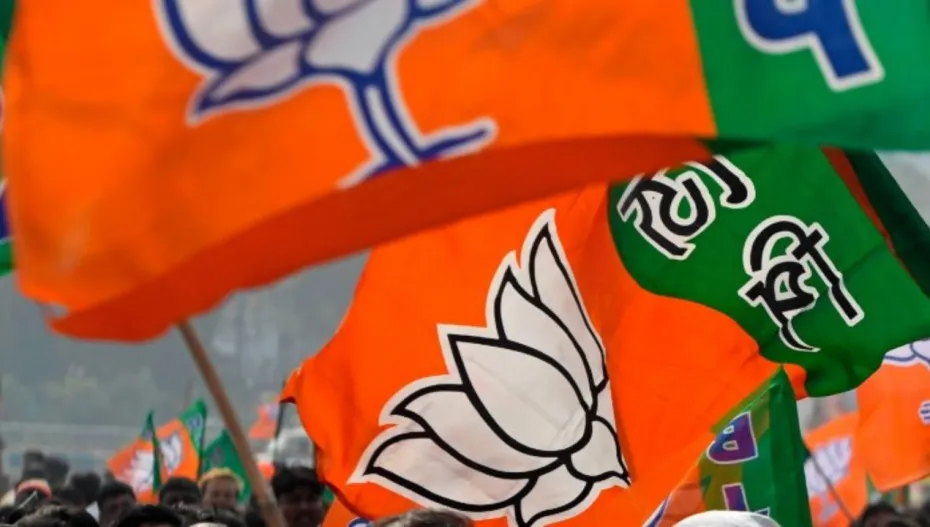The Bharatiya Janata Party (BJP) has intensified its Hindutva narrative as part of its campaign strategy for the Maharashtra Assembly elections, deploying slogans such as “Batenge toh katenge” (if divided, we’ll be slaughtered) and “Ek hain toh safe hain” (united, we are safe).
The BJP’s manifesto includes a proposed anti-conversion law, a move reportedly unsettling its ally, the Nationalist Congress Party (NCP). The party is also warning farmers about potential land takeovers by the waqf board under Congress rule.
The BJP has also resurrected its rhetoric against the Congress over Article 370, following a resolution in the Jammu and Kashmir Assembly seeking the restoration of the region’s special status. Party leaders have drawn historical parallels linking the Congress to the Razakars, a paramilitary force from pre-Independence Hyderabad.
On Tuesday, Deputy Chief Minister Devendra Fadnavis targeted the All India Majlis-e-Ittehad-ul-Muslimeen (AIMIM) with a controversial reference to Aurangzeb, promising to “capture Pakistan.” This statement followed months of anti-“love jihad” rallies by the Sakal Hindu Samaj, an organisation reportedly supported by senior BJP figures.
Fadnavis said, “The love jihad, the land jihad should be countered by dharma yuddha (religious war).”
Facing the prospect of a Maratha-Muslim consolidation behind the opposition Maha Vikas Aghadi (MVA), as well as rural anger over farm issues, the BJP has ramped up its focus on Hindutva themes. Uttar Pradesh Chief Minister Yogi Adityanath, who first coined “Katenge toh batenge,” has been brought into the campaign to appeal to North Indian migrants in Maharashtra.
The strategy appears especially significant in constituencies with large Muslim populations, where BJP leaders believe consolidating Hindu votes could tilt the balance. In Dhule, Prime Minister Narendra Modi adapted Adityanath’s slogan to “Ek hain toh safe hain,” urging unity among Hindus.
The BJP’s attempts to quell Maratha anger over the quota issue have seen limited success. Manoj Jarange-Patil, a key leader in the Maratha agitation, has refused to back any party, which could strengthen the MVA by ensuring a consolidated Maratha vote.
Meanwhile, rural dissatisfaction with the BJP’s handling of agricultural issues persists. A senior BJP source stated that recent attempts to address caste and agricultural issues had not yielded the desired impact. The source admitted, “We had hoped welfare schemes in the agriculture sector would ease farmer anger over low kharif crop prices. We never anticipated such intense dissatisfaction.” The party’s assumption that Maratha anger over reservation quotas would subside has also proven false, especially as Manoj Jarange-Patil’s decision to remain unaffiliated may favour the MVA by preventing the Maratha vote from splintering.
Congress leader Balasaheb Thorat accused the BJP of employing “fake narratives” to mislead voters. He cited the party’s claims about the waqf board as baseless and said, “The BJP has always relied on caste and religion for votes, but this time, it won’t work.”
Ajit Pawar of the NCP, a BJP ally, has distanced himself from the party’s overt Hindutva messaging. He called for restraint, reminding his party of Maharashtra’s progressive heritage inspired by figures like Chhatrapati Shivaji Maharaj and Dr B.R. Ambedkar.
Despite the criticism, BJP leaders like Shivray Kulkarni defended the party’s approach, arguing that the Hindutva narrative is rooted in ground realities and the Rashtriya Swayamsevak Sangh’s founding ideals. Kulkarni claimed that the idea of “vote jihad” reflects the Opposition’s attempts to rally minority votes against the BJP, citing the Lok Sabha election results as evidence.
With Muslims making up approximately 12% of Maharashtra’s population and influencing several key constituencies, the BJP is betting on its Hindutva push to consolidate its position in the state. Whether this strategy will overcome rural grievances and caste dynamics remains to be seen as the elections approach.
Also Read: Renowned Digital Artist and Photographer Rahul Gajjar Dies at 64












